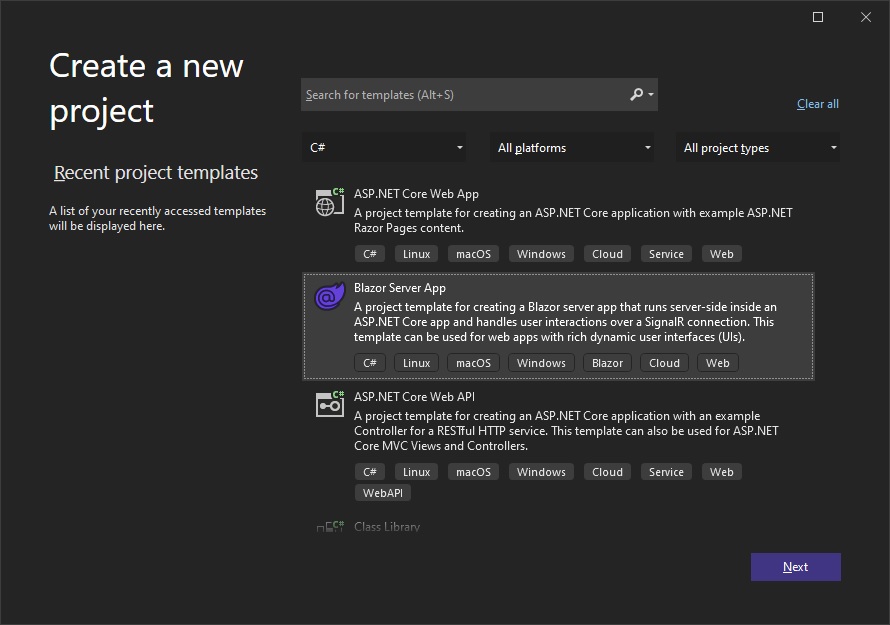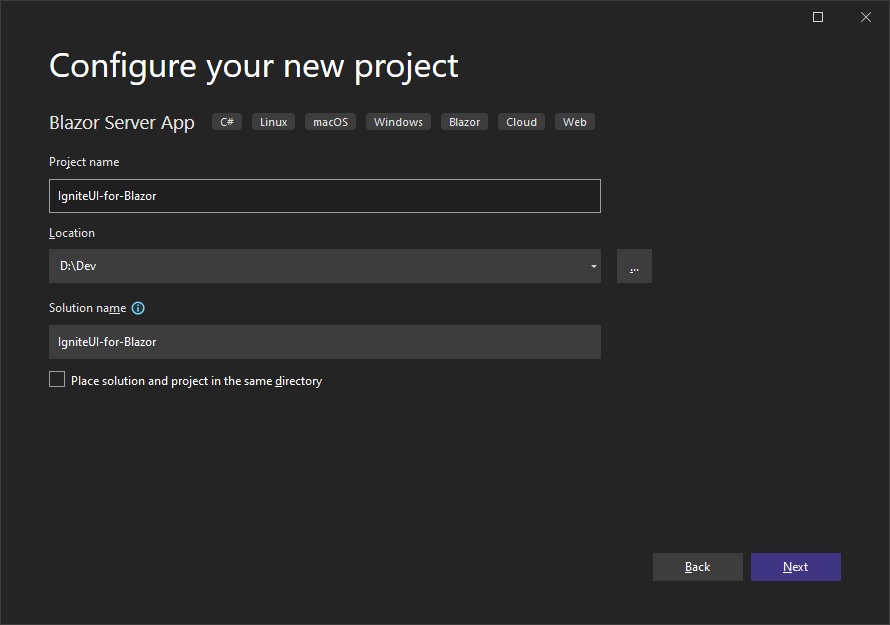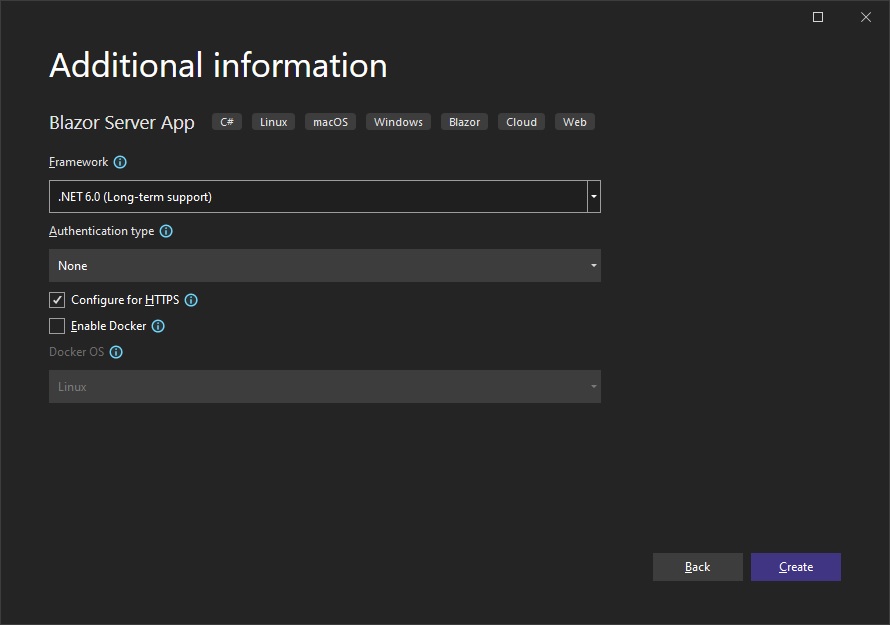Getting Started With Ignite UI for Blazor
This topic provides step-by-step instructions for creating Blazor Server applications with Ignite UI for Blazor using Visual Studio.
Create a New Blazor Server Project
The steps below describe how to create a new Blazor Server project. If you want to add Ignite UI for Blazor to an existing application, go to the Install Ignite UI for Blazor Package section.
Start Visual Studio 2022 and click Create a new project on the start page, select the Blazor Server App template, and click Next.

Provide a project name and location, and click Next

Specify additional project options, and click Create

Install Ignite UI for Blazor
Ignite UI for Blazor is delivered via NuGet packages. To use the Ignite UI for Blazor components in your Blazor applications, you must first install the appropriate NuGet packages.
In Visual Studio, open the NuGet package manager by selecting Tools → NuGet Package Manager → Manage NuGet Packages for Solution. Search for and install the IgniteUI.Blazor NuGet package.
For more information on installing Ignite UI for Blazor using NuGet, read the Installing Ignite UI for Blazor topic.
Register Ignite UI for Blazor
.NET 6 and Later Applications
1 - Open the Program.cs file and register the Ignite UI for Blazor Service by calling builder.Services.AddIgniteUIBlazor function:
var builder = WebApplication.CreateBuilder(args);
// Add services to the container.
builder.Services.AddRazorPages();
builder.Services.AddServerSideBlazor();
builder.Services.AddIgniteUIBlazor();
var app = builder.Build();
2 - Add the IgniteUI.Blazor.Controls namespace in the _Imports.razor file:
@using IgniteUI.Blazor.Controls
3a - Add the Style Sheet in the <head> element of the Pages/_Layout.cshtml or Pages/_Host.cshtml file:
<head>
<link href="_content/IgniteUI.Blazor/themes/light/bootstrap.css" rel="stylesheet" />
</head>
3b - Add Script References:
<script src="_content/IgniteUI.Blazor/app.bundle.js"></script>
<script src="_framework/blazor.server.js"></script>
.NET 5 Applications
1 - Open the Startup.cs file and register the Ignite UI for Blazor Service by calling services.AddIgniteUIBlazor():
public void ConfigureServices(IServiceCollection services)
{
// ...
services.AddIgniteUIBlazor();
}
2 - Add the IgniteUI.Blazor.Controls namespace in the _Imports.razor file:
@using IgniteUI.Blazor.Controls
3a - Add the Style Sheet in the <head> element of the Pages/_Host.cshtml file:
<head>
<link href="_content/IgniteUI.Blazor/themes/light/bootstrap.css" rel="stylesheet" />
</head>
3b - Add Script Reference to the Pages/_Host.cshtml file:
<script src="_content/IgniteUI.Blazor/app.bundle.js"></script>
<script src="_framework/blazor.server.js"></script>
Add Ignite UI for Blazor Component
Add an Ignite UI for Blazor component to your razor page:
<IgbCard style="width:350px">
<IgbCardMedia>
<img src="https://images.unsplash.com/photo-1541516160071-4bb0c5af65ba?ixlib=rb-1.2.1&ixid=eyJhcHBfaWQiOjEyMDd9&auto=format&fit=crop&w=350&q=80" />
</IgbCardMedia>
<IgbCardHeader>
<h4>Jane Doe</h4>
<h6>Professional Photographer</h6>
</IgbCardHeader>
<IgbCardContent>Hi! I'm Jane, photographer and filmmaker.
Photography is a way of feeling, of touching,
of loving. What you have caught on film is captured forever...
it remembers little things, long after you have
forgotten everything.</IgbCardContent>
<IgbCardActions>
<IgbButton>More Info</IgbButton>
</IgbCardActions>
</IgbCard>
Build and run the Blazor app.
